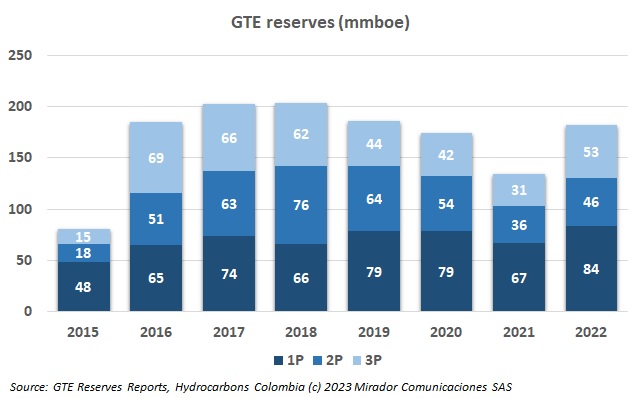Colombia will face a gas deficit starting 2027, yet the government already plans to address this situation with imports. Here are the details.
Juan Carlos Vélez Uribe announced his resignation as president of the National Federation of Fuel and Energy Distributors (Fendipetróleo).

Frontera Energy Corporation (TSX: FEC) announced its full year 2023 capital and production guidance and its estimated fourth quarter and 2022 full year average daily production.
The Minister of Energy (MinEnergia), Irene Vélez, has been involved in controversies ever since she took control of the entity. This is what she had to say on the matter.
The government’s decision not to award new oil contracts continues to generate discussions in the country due to its negative implications for the national economy. Experts spoke about the need to keep exploring.
The father of the Minister of Mines and Energy (MinEnergia), Irene Vélez, has great influence in the new Colombian political environment. This is why.

Gran Tierra Energy Inc. (TSX: GTE) announced its 2022 year-end reserves as evaluated by the Company’s independent qualified reserves evaluator, McDaniel & Associates Consultants Ltd. (McDaniel).
Frontera Energy Corporation (TSX: FEC), Ecopetrol (NYSE: EC), Hocol, Tecpetrol and Cepsa issued a public statement regarding blockades in the department of Meta.
Sociedad Portuaria El Cayao (SPEC LNG) initiated a process to analyze a possible expansion of the regasification terminal.
Frontera Energy (TSE: FEC) and Geopark (NYSE: GPRK) were included in the 2023 Bloomberg Gender Equality Index (GEI).